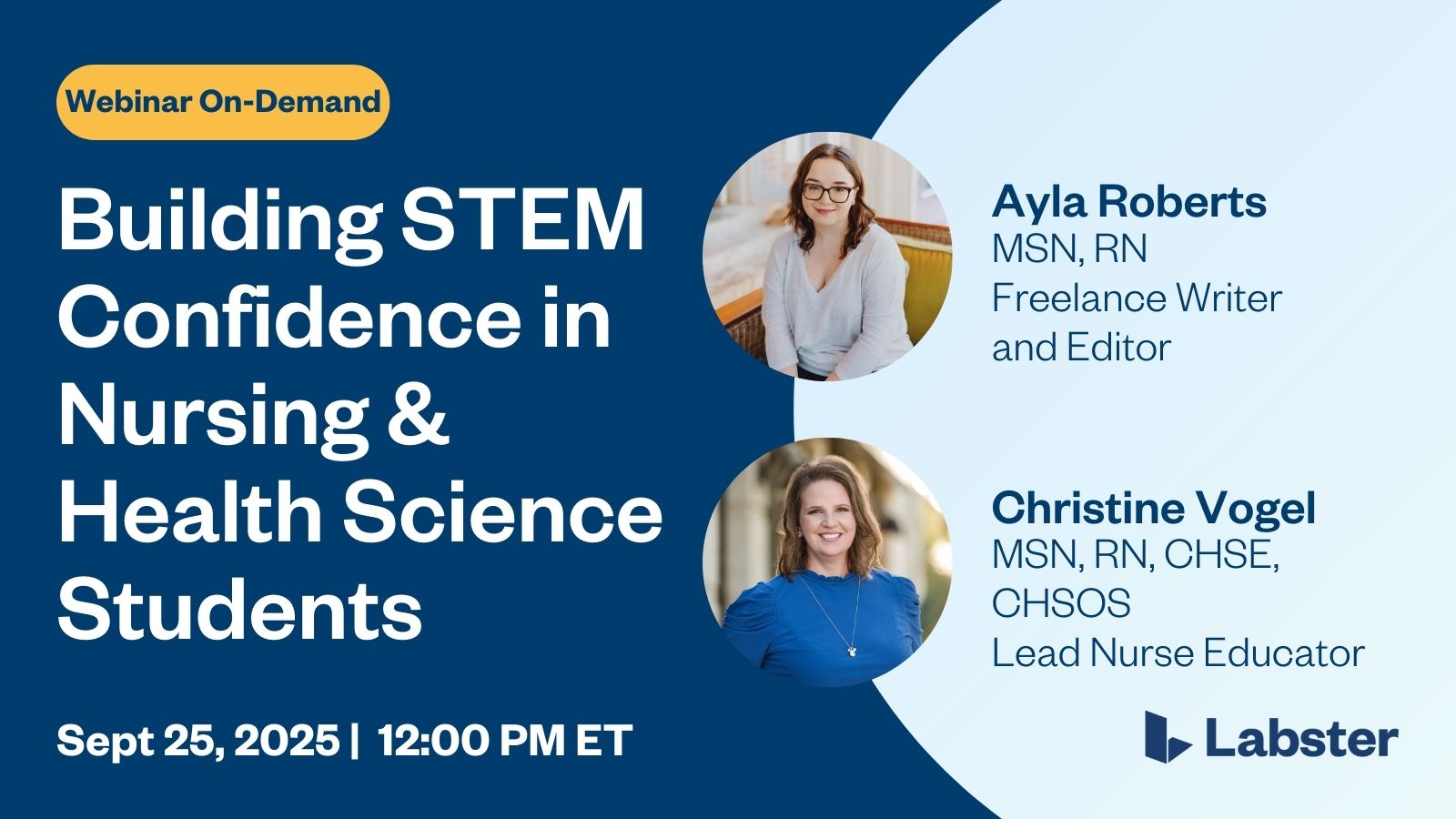.jpeg)
Table of Contents
Name of the heading
Student learner's attention spans are shorter than ever, they require more flexibility due to work, family, or personal responsibilities, and they each come with individual academic, social, and cultural needs.
One solution to changing needs is giving students agency—that is, giving them an active role or choice in how they learn. According to Julie Evans, CEO of Project Tomorrow and author of Free Agent Learning : “All students, regardless of background or learning needs, deserve engaging learning experiences and the opportunity to build personal agency as a learner. Educational equity and student ownership of learning are shaping the future of educational efficacy.”
We’ll delve into student agency, choice boards, the benefits of giving students agency and how Labster, an immersive digital platform for STEM learning, has created innovative solutions to foster a more engaging and effective learning environment for students worldwide.
What is Student Agency?
Agency, as defined in Street Data: A Next-Generation Model for Equity, Pedagogy, and School Transformation, is “the idea that people have the capacity to take action, craft and carry out plans, and make informed decisions based on a growing base of knowledge.” It includes identity, belonging, mastery, and efficacy.
Jennifer Davis Poon, a Center for Innovation in Education Fellow, put it well that there are four pillars to student agency:
- Setting advantageous goals
- Initiating action toward those goals
- Reflecting on and regulating progress toward those goals.
- Internalizing self-efficacy
This concept is deeply intertwined with students' sense of identity, their feelings of belonging within the educational community, their ability to master content, and their belief in their efficacy as learners and individuals.
Student Agency Through Choice Boards
What does agency look like in practice? It could mean giving students choice boards or giving them multiple options to learn a subject. Using choice boards is an alternative to the one-size-fits-all assignment that helps the instructor become more of a facilitator. It also lets students, with their unique needs and circumstances, take more ownership of their own learning.
The most effective choice boards offer a moderate number of options, as research has shown that the motivational benefits of choice tend to wane when there are too many options or when the criteria for selecting options are unclear. For best results, offer no more than nine options with instructions to select four.
Below is an example of choice boards using Labster’s immersive digital learning platform:

Benefits of Fostering Student Agency & How Labster Helps
Enhanced engagement and motivation: Student agency directly contributes to increased engagement by making learning more relevant and exciting. When students are agents in their learning, they show greater motivation to learn. A study found that “for students to thrive and achieve at high levels, they must be interested and emotionally invested in their learning.” Involving them by giving them choice is one way to do this.
Labster’s virtual lab simulations are more effective at engaging students than traditional teaching methods. They feed curiosity and motivate students to explore STEM phenomena that may otherwise be difficult to grasp.

Promotion of educational equity: By accommodating diverse learning styles, backgrounds, and needs, student agency ensures all students have equal opportunities to succeed. This personalized approach to learning helps bridge gaps and address disparities in educational outcomes.
Through a research study at a large Texas university, Labster demonstrated that its virtual platform can decrease DFW rates.

Increased real-world relevance: When students can connect what they're learning with real-life applications, education becomes more meaningful. Student agency allows for this contextualization, making learning more applicable and engaging beyond the classroom.
Labster helps students step into the shoes of a scientist, solving real-world challenges and learning how to apply their learning beyond the classroom.
Annemarie Duncan, Adjunct Professor of Biology at Barton Community College, said, “I focus more on learning than rigor. I care that they grasp the concepts beyond rote memorization. I like to connect classroom lessons to real life, so with Labster, I'll choose simulations that explore disease, investigate the molecular makeup of food, etc. I especially like the simulations that allow students to virtually handle lab equipment that they may encounter in future classes and/or workplaces.”
Tailored learning experiences for individual needs: By giving students choices in their learning paths, types of assignments, and even the pace at which they progress, student agency ensures that education is not a one-size-fits-all model but a dynamic process that adapts to the unique characteristics of each learner.
Labster’s immersive digital learning platform enables students to learn differently than textbooks and lectures. They’re used in supplement to those methods, helping students learn in a different way. Further, the platform helps them learn asynchronously or in a hybrid way, which many learners need nowadays.
A student shared in a Fall 2023 survey, "[Labster] helps keep me much more engaged than reading or regular assignments. As someone with ADHD and other focus issues it's much easier to have something with clear instructions and visible results like this."
Final Thoughts
Meeting all students where they are is necessary to help them succeed. At Labster, educational equity is at the heart of what we do. We aim to equip educators with the tools they need to help students learn STEM concepts in a way that promotes student agency, enabling students to learn in a variety of ways.
FAQs
Heading 1
Heading 2
Heading 3
Heading 4
Heading 5
Heading 6
Lorem ipsum dolor sit amet, consectetur adipiscing elit, sed do eiusmod tempor incididunt ut labore et dolore magna aliqua. Ut enim ad minim veniam, quis nostrud exercitation ullamco laboris nisi ut aliquip ex ea commodo consequat. Duis aute irure dolor in reprehenderit in voluptate velit esse cillum dolore eu fugiat nulla pariatur.
Block quote
Ordered list
- Item 1
- Item 2
- Item 3
Unordered list
- Item A
- Item B
- Item C
Bold text
Emphasis
Superscript
Subscript






